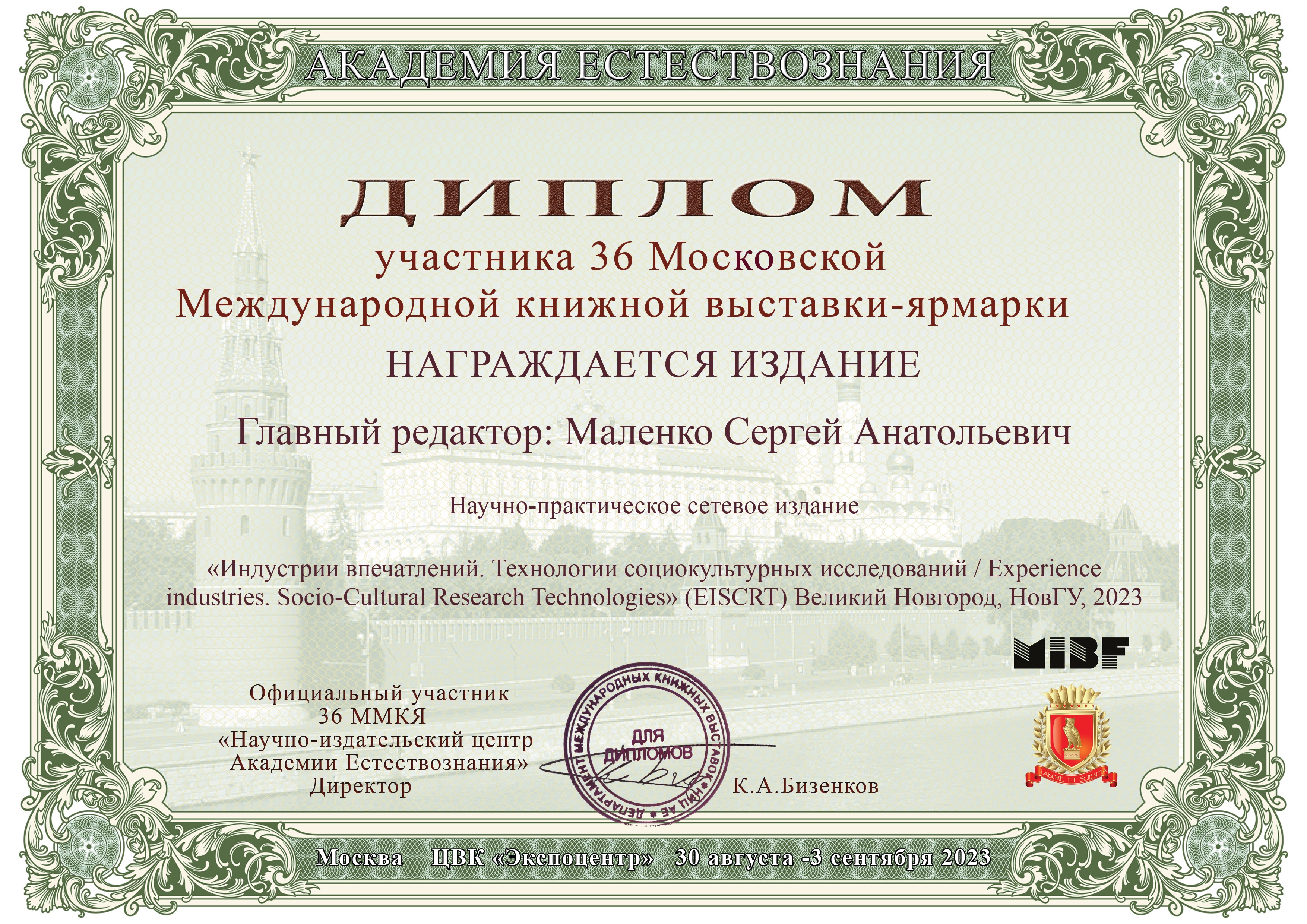THE VAMPIRE AS AN AGENT OF THE CHRONOPOLITICS OF SOVIET NOSTALGIA
DOI:
https://doi.org/10.34680/EISCRT-2023-3(4)-95-115Keywords:
chronopolitics, historical memory, vampire, Soviet nostalgia, TV seriesAbstract
The article is devoted to the consideration of the image of a vampire in modern popular culture in the context of chronopolitics, which constructs Soviet nostalgia. The authors consider the work of chronopolitics in relation to historical memory, which provides continuity between various collective memories existing within the framework of macronarratives. The theme of vampires in popular culture is a symbolic trend of popular culture, serving as a link between the past, present and future in alternative history projects, which successfully forms a picture of the world for virtual local communities. Thus, the image of a vampire can be considered an agent of chronopolitics, which today is mostly implemented in the format of nostalgia for the Soviet past. Nostalgia for the Soviet era reflects the constructed concept of historical memory of modern Russian society, in which there is a place not only for ideas about the real past, at least somehow consistent with historical reality, but also for various images of mass culture integrated into Russian history. The authors, using the example of the TV series “Food Unit” (2021), “Vampires of the Middle Lane” (2021-2022), “Karamora” (2022), show that despite the initial Western perception of the vampire as an image of mass culture, they organically fit into the ideas of the alternative Soviet past, acting as an agent of chronopolitics, keeper of historical memory and mediator between the past, present and future.
For citation:
Artamonov, D. S., & Tikhonova, S. V. (2023). The Vampire as an Agent of the Chronopolitics of Soviet Nostalgia. Experience industries. Socio-Cultural Research Technologies (EISCRT), 3 (4), 95-115. (In Russian). https://doi.org/10.34680/EISCRT-2023-3(4)-95-115








